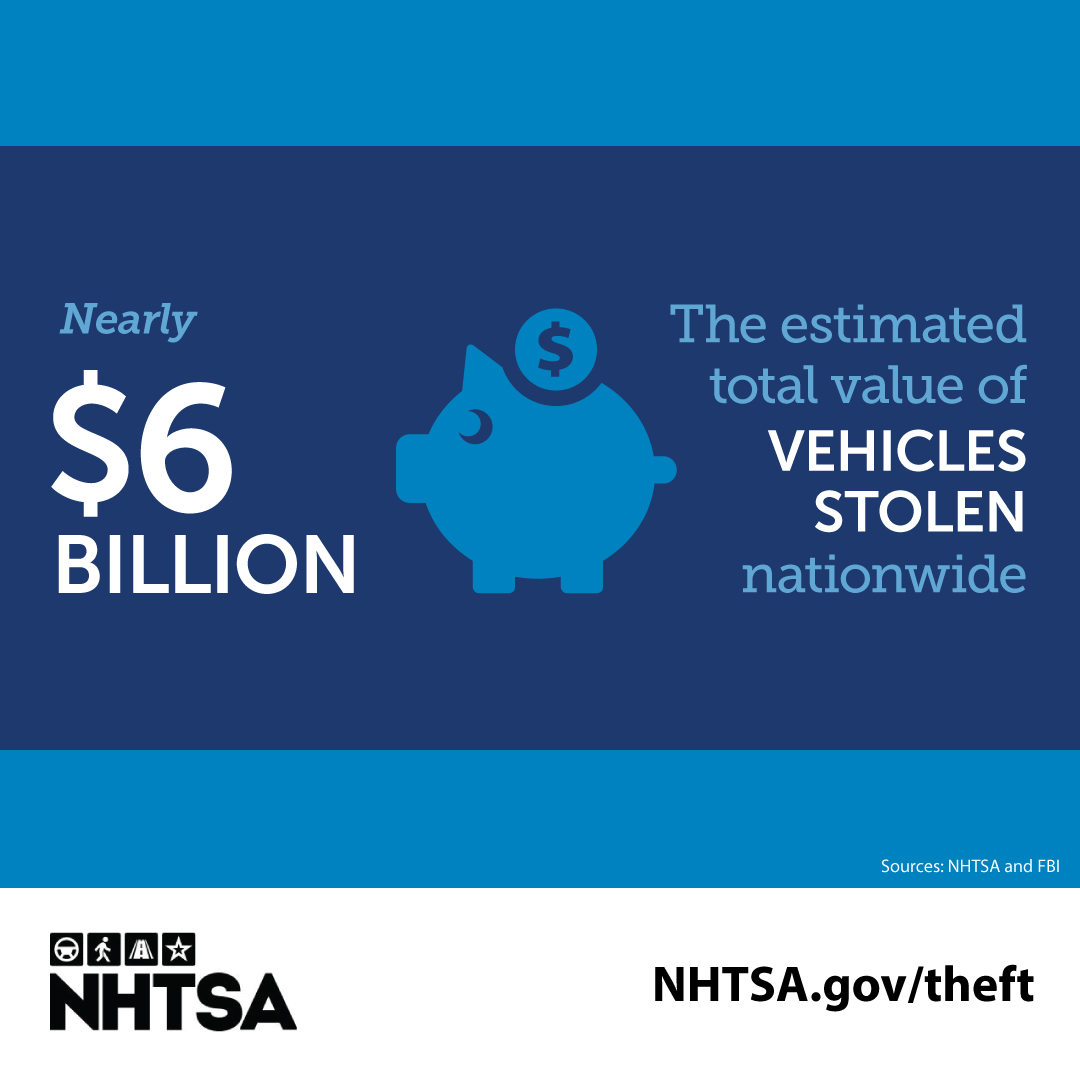Vehicle theft costs nearly $6 billion in 2017 alone. Keep your vehicle in your possession and spread the word about Vehicle Theft Prevention Month during July.
What’s going on with vehicle theft?
Vehicle theft has long been among the most costly forms of property crime, accounting for a nearly $6 billion loss nationwide in 2017, federal crime data show.
For nearly 20 years, it was an epidemic.
The rate of motor-vehicle theft surged in Arizona in the late 1980s, according to the FBI’s Uniform Crime Report. In 1995, as the Arizona Automobile Theft Authority was revving up, the state hit its all-time record high for the number of thefts — 48,830 — and the rate of thefts — 1,158 per 100,000 people.
The number of thefts plateaued in the early 2000s before plummeting in the latter part of the decade.
By 2015, Arizona saw its lowest number and rate of vehicle thefts since 1988.
While it’s impossible to say precisely how much of the decline could be traced to the AATA and how much was due to other shifts in technology and crime, Zumbo was quick to claim some of the credit.
“Although auto theft rates have declined significantly the past two decades, it has NOT been eradicated,” Zumbo wrote in a letter to Ducey the year after the money was scraped from its budget. “…Resources, technology and support are needed more than ever to stay current on crime trends.”
Though Phoenix and Arizona no longer led the country in car thefts, cities in neighboring New Mexico and California still topped the list — a problem that could again bleed across state lines, officials warn.
Zumbo said he is already seeing a rise in thefts of cars used by apps like Turo, which allows people to rent their cars out to strangers, similar to AirBnB for homes. He also said there’s a rise in thefts from vehicles, with criminals smashing windows and taking what they can find.
Because a car is increasingly a “computer on wheels,” thieves have found the technology and components more valuable than the car itself, said Roger Morris, spokesman for the National Insurance Crime Bureau.
Some law enforcement agencies and public officials reduced auto-theft prevention efforts and halted bait-car programs when rates plummeted. With a national uptick in the past few years, cities like Albuquerque — a national hotspot for vehicle thefts — are again investing in bait-car programs.
“It just goes to show,” Morris said, “that when you take things for granted somewhat, it can come back to bite you.”
Last year — the first since the $3 million shift to the Border Strike Force — the number and rate of vehicle thefts reversed its downward trend in Arizona.
